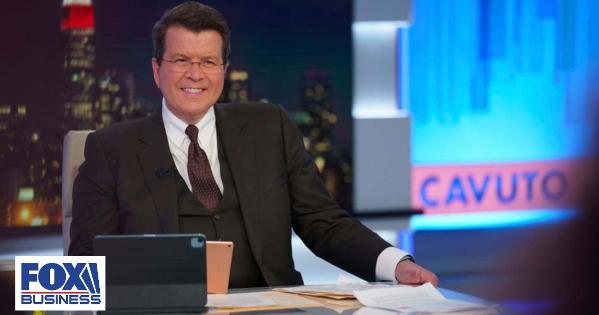To Understand DC and the World, Neil Cavuto Turned to AU

Neil Cavuto, SOC/MA ’82, was early in his news career when he enrolled at American University in “a quest to understand Washington better.” He believed the school’s location in the nation’s capital would accelerate his insight.
“I didn’t know Washington very well, and I was an idiot about the institutions. I really needed to get up to speed,” he said. “I felt that I had a front row seat and [AU] provided the means by which I could cover it better.”
He said his coursework at AU made him love DC and fueled his interest in the politics and policy—a keenness that has threaded through his four decades of news reporting.
Today Cavuto simultaneously hosts three national TV shows and oversees business news coverage for both the Fox News Channel and Fox Business Network. He also is the author of two bestsellers, More Than Money and Your Money or Your Life.
How does he do it? Cavuto answers that question with two words: hard work.
Cavuto acknowledges that he has always been a nose-to-the-grindstone guy, including when he was a student pursuing a master’s degree at AU. “I was a nerd then and I’m a nerd now,” he said. “I was so intent on my studies. I realize now I could have had more fun.”
Fox was a startup when Cavuto joined it in 1996 and became the host of Your World with Neil Cavuto, which still dispenses business and financial market information 25 years later. Since 2018, he has also anchored Fox’s weekend business-and-politics show, Cavuto Live, and hosted the weekly two-hour Cavuto: Coast to Coast. Concurrently, he holds the title of senior vice president and managing editor of business news for Fox News and Fox Business Network.
Fox and Fox Business were not Cavuto’s first startups. He co-anchored CNBC’s debut broadcast in 1989. He describes being part of a business launch as “a blast,” adding that the debut is the easy part.
“The biggest challenge for startups is going to the next phase,” he said, citing his difficulty in lining up guests to interview when the Fox network was fledgling.
Many people see startups as a career gamble, but Cavuto likes to take chances. He believes his fearlessness is connected to his health challenges. He survived cancer, lives with a multiple sclerosis diagnosis and, in more recent years, has undergone heart surgery.
“Maybe owing to the health issues I’ve had, I’ve been more of a risk taker,” he said. “The worst you can do [with a startup] is fail. When you compare that to the possibility of dying, it’s OK.”
Cavuto has been a player in the evolution of the news landscape. “Television wasn’t what it is when I was going through American,” he pointed out. “CNN had just started the year before. We didn’t have MSNBC. We didn’t have Fox.” Instead, news was dominated by daily papers.
Today’s journalism arena may seem different, but Cavuto said only the distribution channels have changed. He said the process of gathering information remains the same.
“I don’t think the venue matters as much as the substance you bring to it,” he said. “You stand out by the quality of your work and research.” He said information “is always key.”
Cavuto speaks with seriousness when asked about the role of media.
“We, as journalists, have an obligation to help people make sense of life. I don’t take that lightly and I don’t want kids [entering the field] to take it lightly. There’s a reason why our forefathers treated it with such dignity and respect.”
He described journalists as filling the role of “ombudsman on the world,” and he called on the next generation of communications leaders to “get in this field for all the right reasons … Get in it because you want to make a difference.
“A lot of people are drawn to the allure and excitement of journalism… but it’s a great mission helping people make sense of life.”
After more than 40 years in the news business, still running like a dynamo, Cavuto said his advice for AU’s future journalists is simple: “If you’re willing to put sweat equity into whatever you do, that’s what matters.”
